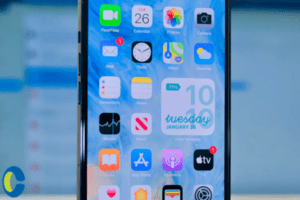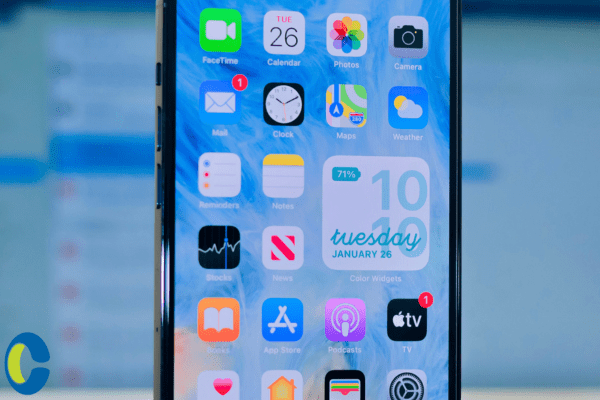Customer service is an important and often overlooked part of a company. Your customer service agents are the face and voice of your company. Most consumers see your customer service agents as the embodiment of your brand. Your customer service team’s interaction with customers can make or break a customer’s decision to choose you over your competitors. How a customer is treated is often one of the deciding factors in customer loyalty.
With advancing technology, customer service is increasingly blending with other departments. This is especially true of your customer service and marketing teams. More of your departments and teams may start to see an increase in interactions with customers as technology facilitates customer accessibility to your company. This means that you’ll probably need to make sure that all of your teams brush up on their customer service skills.
You probably already have a customer service team that’s good. But, so do most companies. How can you take your customer service to the next level and really wow your customers? Here are five underrated skills that you can use that will build your customers trust and loyalty and make you a rockstar:
1. Active Listening
Active listening is a vital part of any communication – whether it’s between coworkers, customers, or even friends and family. This skill is often overlooked as a part of the service process, but when you engage in active listening, it can boost the overall customer experience.
Active listening is a technique that requires the listener to be fully present, understand what is being said, and respond accordingly. Part of active listening is to ask clarifying questions and make sure that you’re understanding what the other person is trying to communicate.
This is especially important in customer service because customers can often have difficulty fully expressing what their question or problem is. When your customer service team learns to apply active listening, they can help your customers by sussing out what exactly the customer needs and responding to that. This will make your customers feel heard, and it will make for a much more efficient interaction between your customer service team and your customers.
2. Intentional silence
Related to active listening is the ability to use silence. It’s easy and natural to want to fill silence with words, but great customer service isn’t afraid of a little silence now and then. It’s okay to take a beat after either a customer or the service agent is finished explaining something in order for the other person to fully process and absorb what was said. Strategic silence can also signal to the customer that the agent is truly listening and isn’t just jumping to conclusions.
3. Positive Framing
There may be times that you can’t fulfill a customer request. Instead of simply saying “No,” learn the power of positive framing. Positive framing is informing a customer that while you can’t complete a particular request, you can do something else. It tells the customer the truth – but doesn’t leave them there! Instead of ending your sentence on a no, tell them what you *can* do. For example, instead of saying “I can’t do that,” try instead “I can’t do that, but what I can do is ..” this not only tells the customer that you’re still focused on their success and satisfaction. Positively framing your “no” will help your customers have an overall positive experience.
4. Expressing empathy
Anyone who’s worked in customer service knows that customers often call or contact your company when there’s a problem. This means that customers can often be frustrated even before they contact your company. It’s common for customers to express frustration to their customer service agents, especially if they may have other frustrations unrelated to your company. A simple expression of empathy can often diffuse an otherwise frustrated or irate customer.
Some great ways to show the customers that you care and empathize are using phrases such as “I can see how that would be frustrating, here’s what I can do,” or “I’m sorry that happened to you. Let’s find a solution.” By letting the customer know you hear, understand, and empathize with them, you’re signaling that you respect their experience and are invested in helping them find a solution. Even simple statements of empathy can go a long way in improving your customers’ experiences.
5. Taking responsibility
There are times when your company may be at fault. From product malfunctions, to employee errors, to third party errors and everything in between, things sometimes just go wrong. Even if something goes wrong that’s completely out of your control, taking responsibility for the error will make you a rockstar to your customers. When you take responsibility for errors or frustrations and offer solutions, this will build trust with your customers.
They will see that you care about them and that their experience and satisfaction are important to you. Often, they may know that it isn’t your fault (for example, if the postal service lost their package). But when you take responsibility and offer a solution (such as shipping out a new product right away or offering a full refund or future credit), the customer will see that you value them and want them to be satisfied.
Customer service is a growing part of every company. Customers have more access than ever to companies through social media, phones, websites and live instant messaging with agents. Most companies know to spend money on training their customers service reps. But when you use the five underrated customer service traits listed above and implement them into your customer service team’s training, you’ll go above and beyond for your customers.
Being a rockstar in customer service means you’ll improve customer trust and loyalty. At the end of the day, your customers want to know that they matter to you and that you’ll do everything you can to ensure that they’re satisfied with your brand. Customers will keep coming back and are much more likely to recommend you to their friends and families if they know you have their back.















